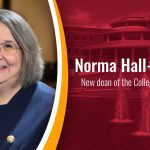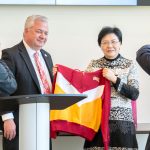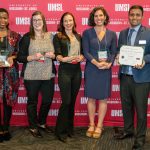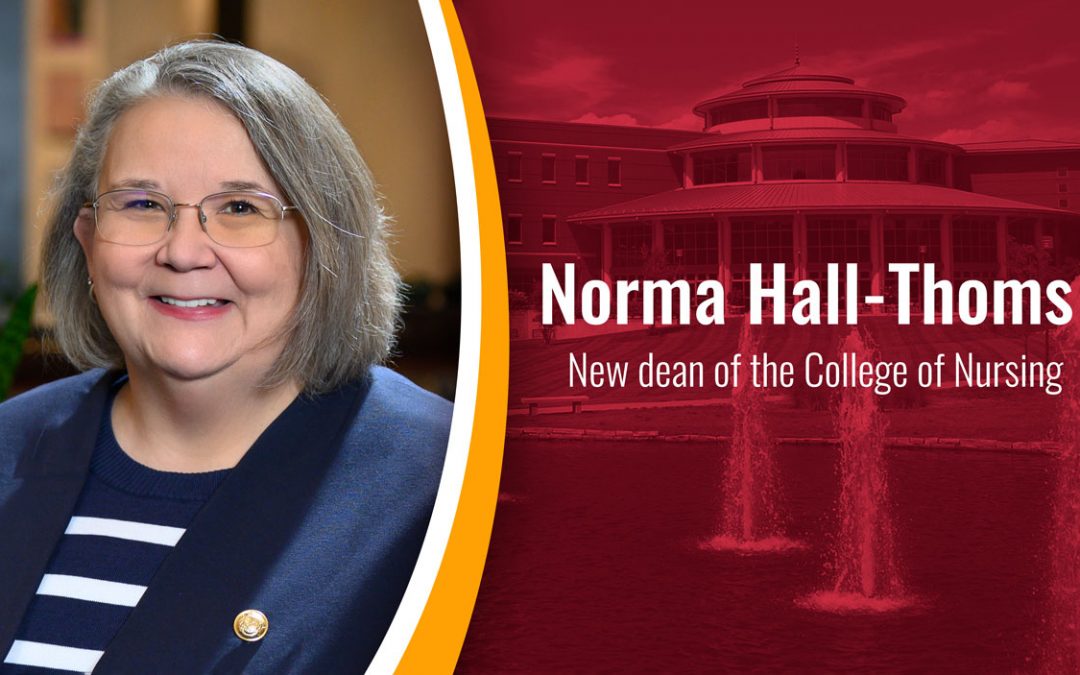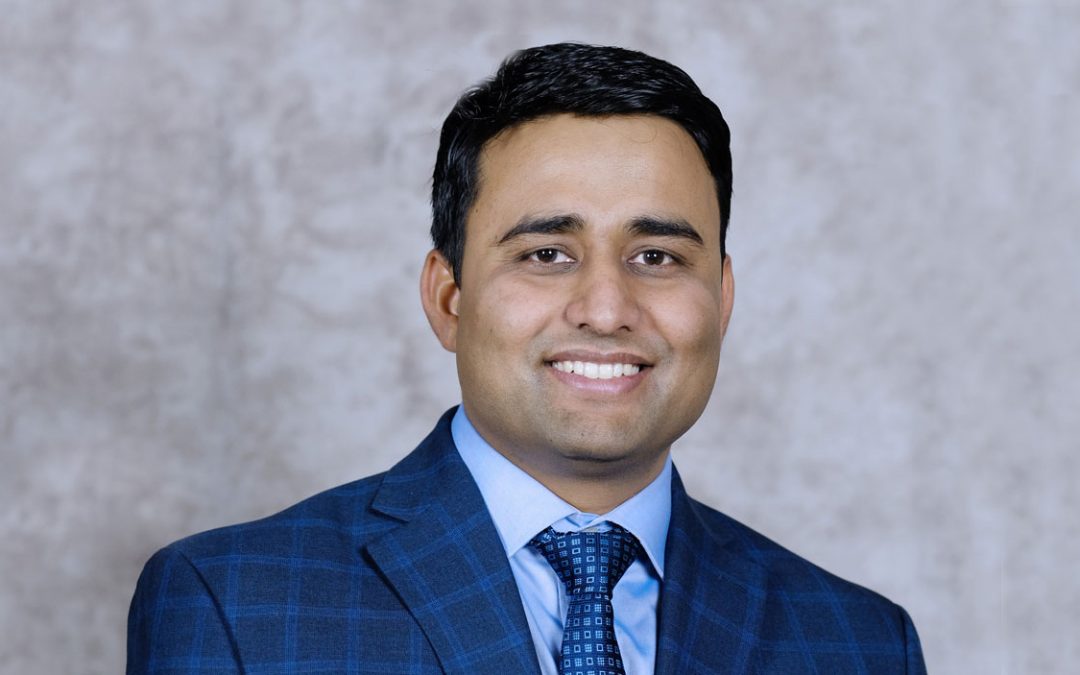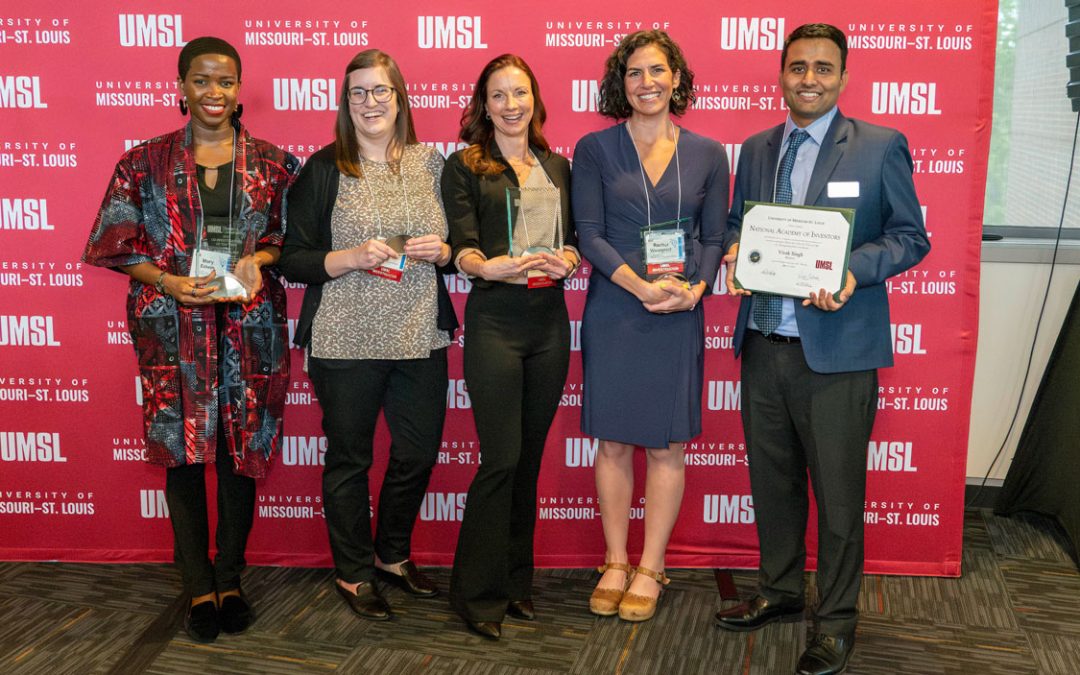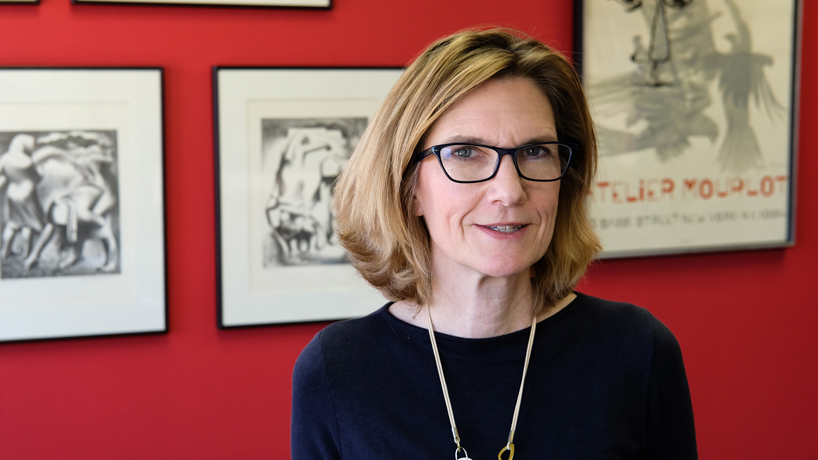
Laura Westhoff, chair of the Department of History, was honored with the Eugene Asher Distinguished Teaching Award last month and is due to receive a Governor’s Award for Excellence in Teaching this spring. (Photo by August Jennewein)
Laura Westhoff gets a little embarrassed talking about the recent recognition that has come her way.
The chair of the Department of History at the University of Missouri–St. Louis last month received the Eugene Asher Distinguished Teaching Award from the American Historical Association at its 132nd annual meeting in Washington, D.C., and she is due to accept a Governor’s Award for Excellence in Teaching at a luncheon this spring.
“I’m not sure I deserve these awards because teaching is big part of what I do,” Westhoff said. “It’s nothing special. It’s my job.”
She is passionate about it and has always seen it as a natural extension of her work as a historian. It’s a means of sharing what she has learned.
“She is extraordinarily innovative and effective in teaching students in a way that few history teachers at any level can match,” UMSL Professor of History Andrew Hurley said. “It’s one thing to understand the research on teaching and understand how students learn. It’s another to apply it. The character of her personality and her commitment and her dynamism enable her to apply those insights effectively in a classroom.”
In her nearly two decades at UMSL, with her dual appointments in the Department of History and the College of Education, Westhoff has helped cultivate those traits in many of her students and helped train numerous teachers to share their knowledge of history with a new generation of learners.
“I have had hundreds of future teachers come through my classes,” Westhoff said. “I think I have probably taught a history teacher in most every district in the region.
“Teacher certification students and history teachers in our master’s program are key groups of students we serve. I just want people to be excited about history, whether they’re looking for a career in it or looking to major in it or just taking a class as an undergraduate.”
She’s found new and creative ways to share her passion for the past, including incorporating Reacting to the Past – the series experiential education games developed by Mark Carnes at Barnard College – into the a course at UMSL earlier this decade. The campus will host a workshop in April to introduce others in region to the pedagogy.
“I’ve found UMSL is a very friendly place to teach,” Westhoff said. “It’s possible to be a creative teacher here. My colleagues support that. The college and university supports ways that I have experimented with teaching, so that’s also been an encouraging factor.”
Her colleagues are grateful to see Westhoff, the department and the university honored.
“We don’t often get the recognition we deserve in terms of the performance of our faculty in the classroom, so this really punctuates that aspect of our mission,” Hurley said. “We need to continually remind not only our own students but the wider community how much stock we put into our teaching and our commitment to that as an integral and critical part of our mission.”
The Eugene Asher Award doesn’t just recognize recipients for their own efforts in the classroom but also how they have advocated for history teaching, similar to Asher, the former University of California Long Beach professor who created The Society for History Education.
Westhoff’s advocacy has taken many forms. In addition to encouraging her own students, she has worked with the history education community in St. Louis to provide professional development through grant-related graduate opportunities for history teachers.
She’s presented at numerous conferences, locally and nationally, on history and teaching, working to expand knowledge and mastery of effective classroom practices.
She’s also been involved with American Historical Association efforts to prepare the next generation of history faculty to teach a broad range of students.
Westhoff, who serves as the faculty coordinator for the Student Teaching in China program, is able to relate to students looking to become teachers because she spent time as a middle school and high school teacher before going to graduate school.
“Those experiences had a bearing on my professional life,” she said. “I am sympathetic to the realities of what teachers face. They’re not just dealing with teaching the curriculum, but they’re dealing with how you teach students with very different needs, from different backgrounds and with increasing demands from administrators. Understanding those experiences has been helpful.”
Westhoff ultimately she left secondary education because she wanted the opportunity to study history more deeply, and she earned her PhD at Washington University in St. Louis in 1999 before joining the UMSL faculty full-time.
Much of her work as a historian has focused on Gilded Age and Progressive Era of American history, and she is the author of “A Fatal Drifting Apart: Democratic Social Knowledge and Chicago Reform” as well as articles in journals such as Journal of American History, The History Teacher and Lessons for Historians and Educators.
She is currently working on a book titled “Educating for Activism,” which explores democratic practices in the mid-20th century with a focus on the work of Myles Horton, Dorothy Day, and Fred Ross.


